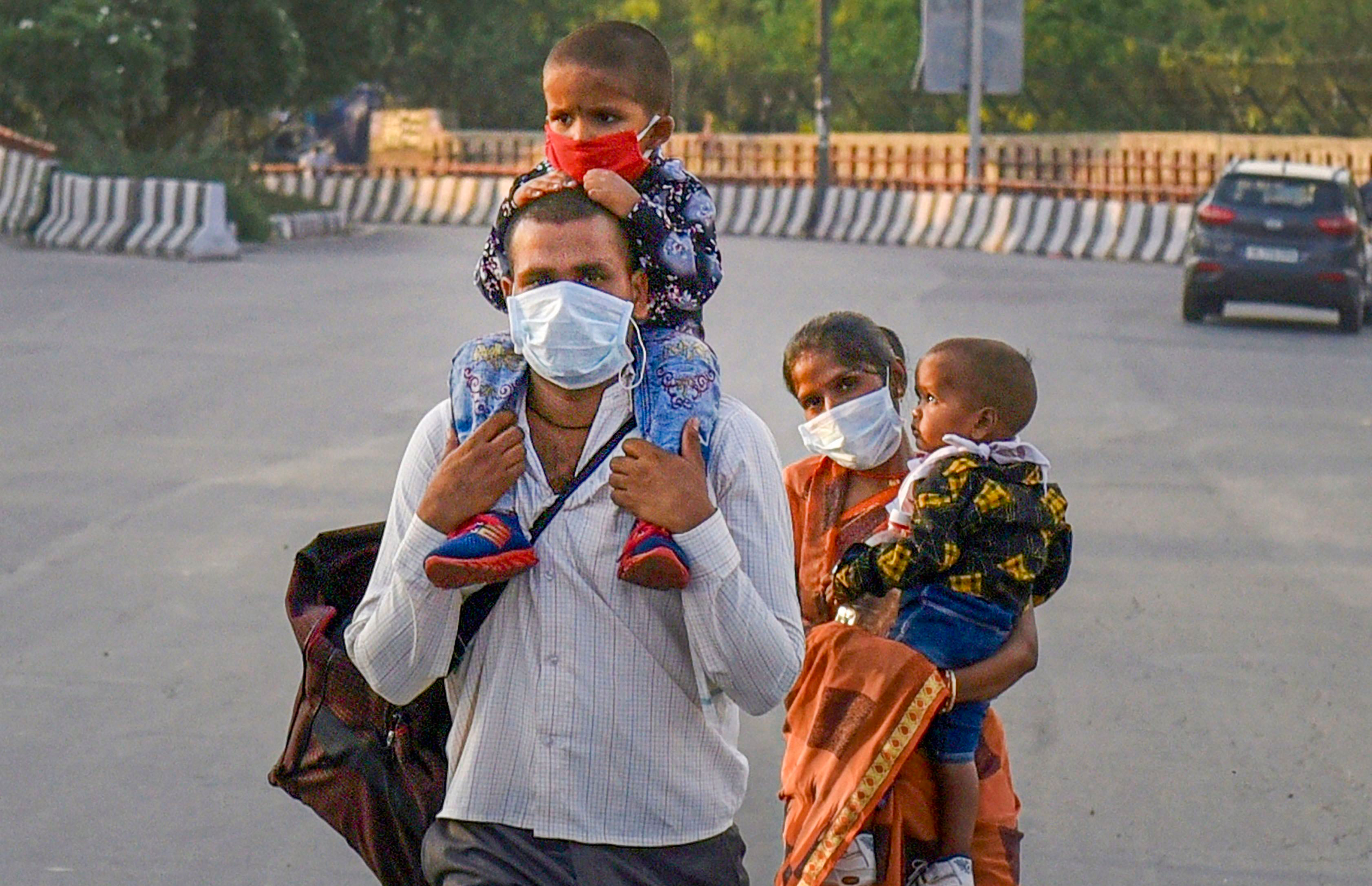In the national capital, no one knows when the much-promised trains that are meant to ferry back those stranded would begin running.
Arshad Alam, a 21-year-old who used to work in a garment factory in East Delhi’s Gandhi Nagar, has been trying frantically to find out how he and nine of his roommates can go back home in Purnia, Bihar. They had even decided to start their homeward journey on foot, but the announcement of trains held them back.
Not much has come from the Delhi government either. It has issued a number of guidelines, announced standard operating procedures and passed several administrative orders on the transportation of stranded people. But on-ground, there is a lack of clarity when the trains would start.
In the national capital, no one knows when the much-promised trains that are meant to ferry back those stranded would begin running.
Arshad Alam, a 21-year-old who used to work in a garment factory in East Delhi’s Gandhi Nagar, has been trying frantically to find out how he and nine of his roommates can go back home in Purnia, Bihar. They had even decided to start their homeward journey on foot, but the announcement of trains held them back.
Not much has come from the Delhi government either. It has issued a number of guidelines, announced standard operating procedures and passed several administrative orders on the transportation of stranded people. But on-ground, there is a lack of clarity when the trains would start.
In his last update on migrants on May 1, the Delhi chief minister said that the Delhi government was in talks with states to work out a plan.
Until then, Kejriwal said, “…adhere to the lockdown so that we can defeat corona… At this moment, we need to remain calm. Whatever is finalised with the state concerned, I will come before you to inform.”
But days later on May 3, Kejriwal expressed doubts about sustaining a prolonged lockdown, he seemed to signal a turnaround. Lamenting stalled economic activity in Delhi, he said, “Revenue has fallen from Rs 3,500 crore in April the previous year to Rs 300 crore this year. How will the government function?”
Not surprisingly, Kejriwal has since allowed almost all industrial estates and in-situ construction sites with on-site workers to open after putting in place social distancing measures.
So, is Delhi hoping to kick-start construction activity in phases in the hope that workers no longer feel the need to leave? That is easier said than done.
But Sanjay Kumar, director at the Centre for the Study of Developing Societies, doesn’t rule out the possibility since Delhi’s dependence on migrants is exceptionally higher than other states.
“It is estimated that out of every 10 workers in a factory, eight are migrants from eastern UP, Bihar, Jharkhand or West Bengal,” he said explaining that migrants also worked in small shops, eateries or as vendors, domestic helps and auto-rickshaw drivers.
According to a 2011 estimate, about 40 per cent of Delhi’s population are migrants. A sizable number of them are from Bihar, Jharkhand, West Bengal and Odisha in addition to those from neighbouring Uttar Pradesh and Haryana.
“Hypothetically, if on July 1, Delhi has no migrants, the city will come to a near-standstill. The government realises this very well and may have opted to delay matters,” Kumar added.
There are states that have taken steps to stop migrant workers from leaving. Karnataka, for instance, was reported to have stopped trains that were supposed to leave with migrant workers on May 6 after several leading property developers met chief minister B.S. Yediyurappa.
Apart from Delhi’s dithering, several states are also wary of having to accommodate thousands of workers returning from elsewhere. Bihar, for instance, is struggling to monitor the sudden influx of its workers. On Monday, the Nitish Kumar government denied permission for five special trains to get back migrants from Kerala.
All the uncertainty has meant that workers stranded in Delhi are getting increasingly restless.
On Monday, when over 500 migrant workers who had gathered near Safdarjung Hospital were asked to return to their construction jobs, they refused. Either their employers gave them a month’s wages or made arrangements for them to go back home, they demanded.
They did not want to work anymore. For, they felt exploited by the construction company that dumped them as soon as the lockdown was announced. Left to fend for themselves, the workers spent more than 40 days without food or money. Only an NGO helped, they said.
“We were not given anything by the company since the lockdown began. We are daily wagers who had to beg for food and money to get by,” said 28-year-old Amarjeet Kumar, one among them, a group of workers who had come to Delhi from Bihar, West Bengal, Jharkhand, Uttar Pradesh and Madhya Pradesh.
“If they can’t pay at least a month’s wages, why should we trust them further. What if there is another lockdown? If we can’t get paid, we’d prefer returning back to our homes,” said Kumar.
Kumar’s plight mirrors that of thousands of others who have been cast aside by factories, construction companies and shops across the city. In the past week, at least 10 groups of migrant workers stranded in different parts of Delhi told Telegraph Online that they preferred going back home as opposed to “dying of hunger here”.
Gujarat, Andhra Pradesh and Tamil Nadu have already reported several instances of worker unrest. In Surat, migrants clashed with police. In Punjab’s Ludhiana, workers blocked a national highway.











